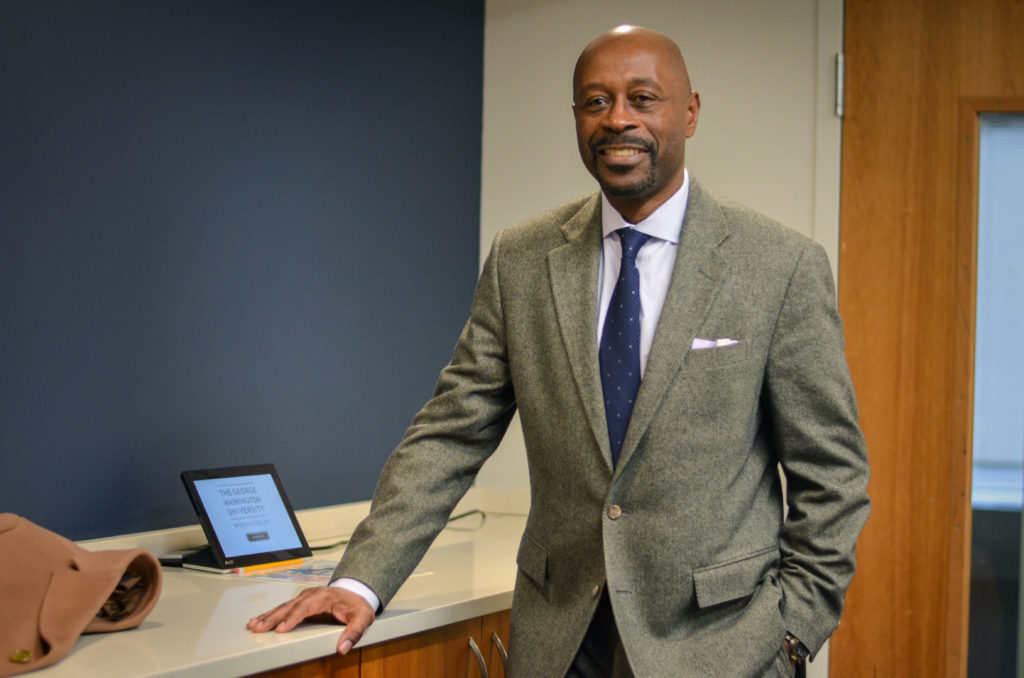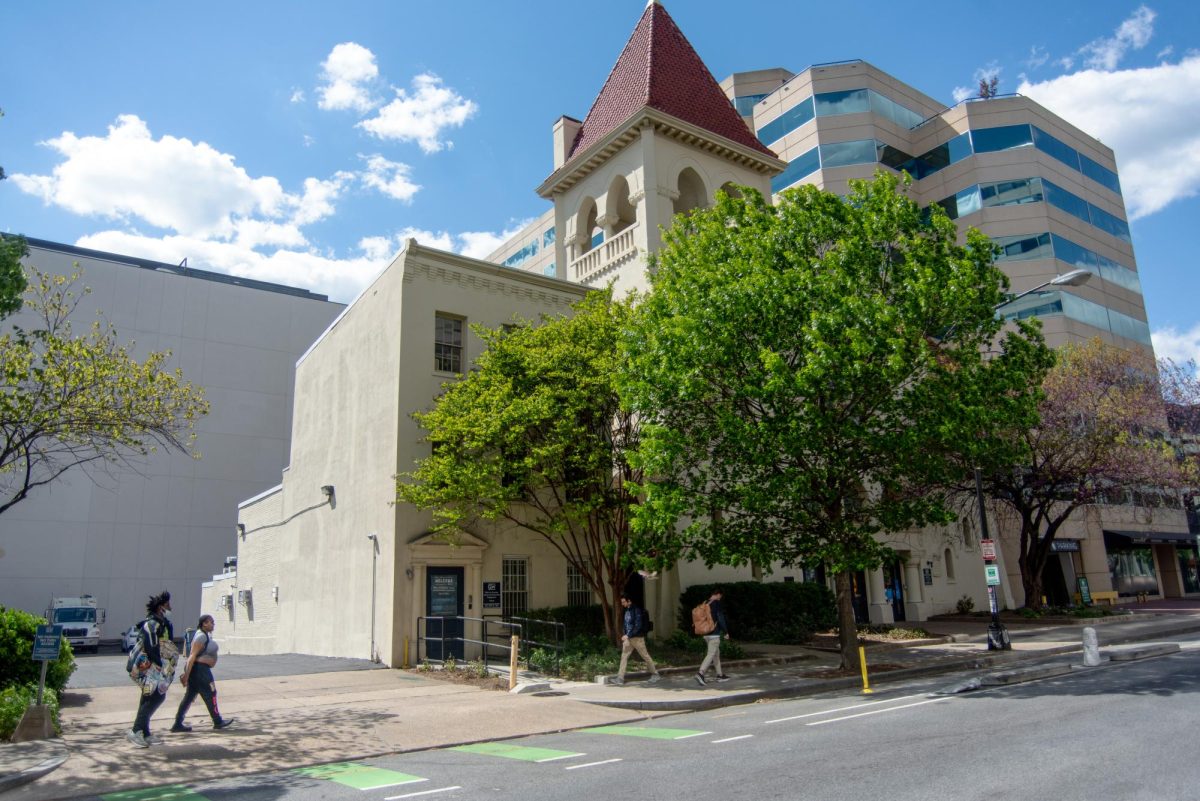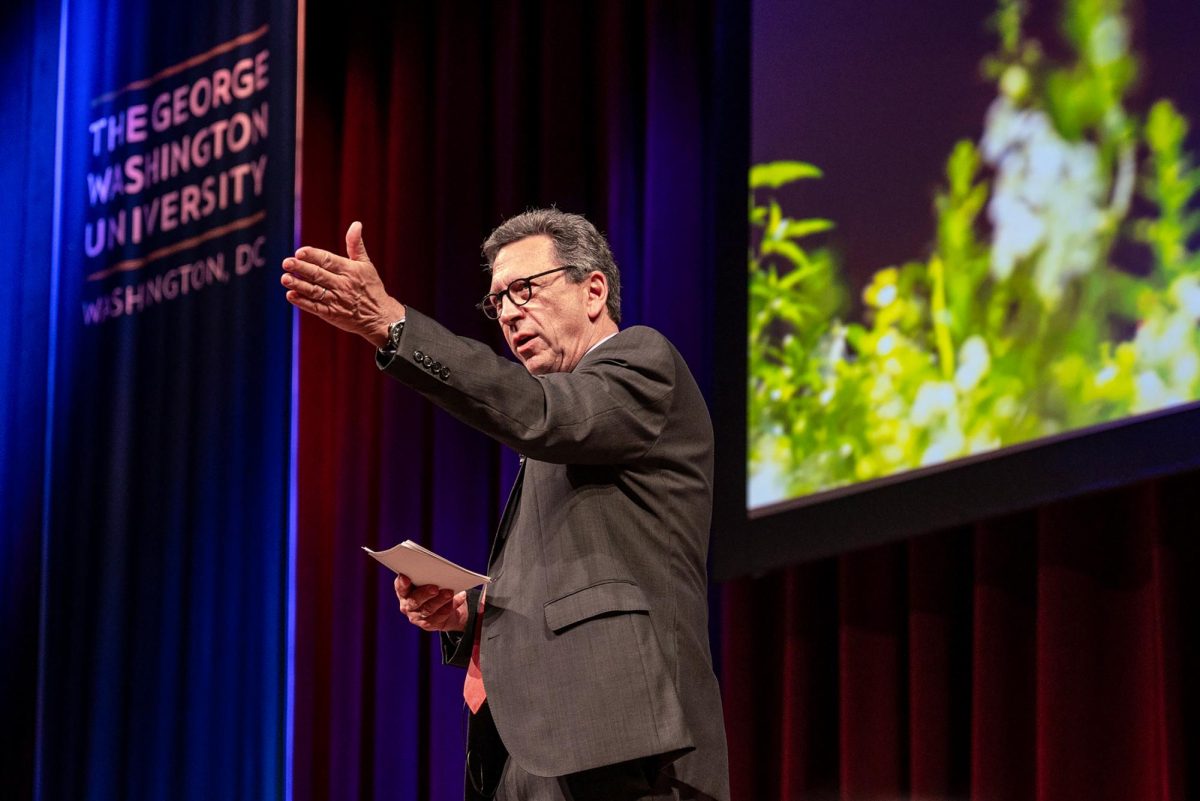University Police Department leaders have no plans adjust their policies related to protesters, GW’s top security official said last week.
Darrell Darnell, the senior associate vice president for safety and security, said the department will continue its normal operations and respect students’ First Amendment rights but will make changes to their protesting policies, if needed.
We’re going to continue to be a university that allows a free expression of speech from different points of view.
Darnell said recent on-campus events, like White House Press Secretary Sean Spicer’s and co-founder Black Lives Matter DeRay Mckesson’s separate visits, did not require any more security than usual events, even though tension among students since the election has been high.
“We’re going to continue to be a university that allows a free expression of speech from different points of view,” he said.
This statement comes as protests have gained attention around the District since President Donald Trump’s inauguration, including the Women’s March and an opposition to the presidential administration’s immigration ban.
Students can peacefully exercise their First Amendment rights both on and off campus, but off campus, they should especially be aware of the situation around them, Darnell said. He advised that if students see protesters breaking the law, they should leave the area.
Students who aim to get arrested are allowed to do so but should understand the consequences, he added.
Darnell said he worked with organizers during a student walkout protest in November to ensure the protest did not disrupt the University’s functioning.
As an African American male, I would not be in the position I am without protests.
Darnell respects students’ right to protest, as long as they are peaceful, he said.
“As an African American male, I would not be in the position I am without protests,” Darnell said. “I understand the importance of it, and I will do everything I can to allow students to do that as long as it’s done peaceably.”
Margarita Mikhaylova, a Metropolitan Police Department spokeswoman, said MPD’s standard operating procedures document is up-to-date with protester information.
All people and groups are allowed to organize and assemble in public to be seen and heard, but MPD can still arrest them if they endanger the public or attempt to damage property, according to the MPD’s current standard operating procedures.
Mikhaylova declined to say if the MPD policy had been changed in the wake of recent protests surrounding President Donald Trump’s election and inauguration.
Student Association Sen. Logan Malik, U-At large, said Darnell and UPD officers were supportive and communicated well while he and other organizers planned for the walkout. In another protest against University President Steven Knapp’s Earth Day address last year, UPD officers allowed a protest to continue, he said.
Malik said ensuring students’ freedom to protest on campus is essential to protecting their freedom of speech.
“As far as the policy is concerned now, I haven’t experienced any personal issue with it, and as far as specifically, the security part, GWPD, they have been quite good,” he said.
Progressive Student Union coordinating committee member Alexa Zogopoulos said although PSU does not normally start large movements that require UPD supervision, UPD has been easy to work with when the group has needed to.
“As far as I know, from my experiences and from what I’ve witnessed, every interaction between students and campus police have been very civil, very calm,” she said.
Earlier in January, the Georgetown University Police Department escorted six or seven non-student protesters from RefuseFascism.org off campus after the protesters distributed flyers on campus and entered classrooms, the Georgetown Voice reported.
This Wednesday, protests against visiting conservative speaker Milo Yiannopoulos at the University of California Berkeley resulted in the cancellation of the event and $100,000 worth of damage, according to a university statement.
Nicolas Hernandez, a University of California Police Department sergeant, said masked individuals who were not students instigated the protests.
“I would say there were two different events,” Hernandez said. “There was the protest, and there was the people that came in to riot, so those are two distinctly different things.”
Hernandez said his department often handles those protests, and he is not yet sure if the department will change their protest policy.
“It’s like any other profession,” he said. “We learn from each event and see what works, what doesn’t work, what we could do better.”
Justine Coleman contributed reporting.




